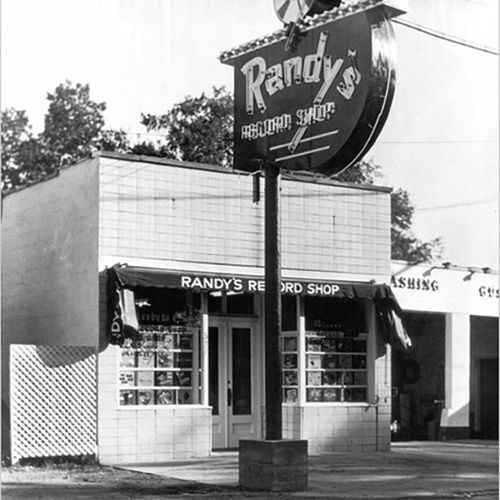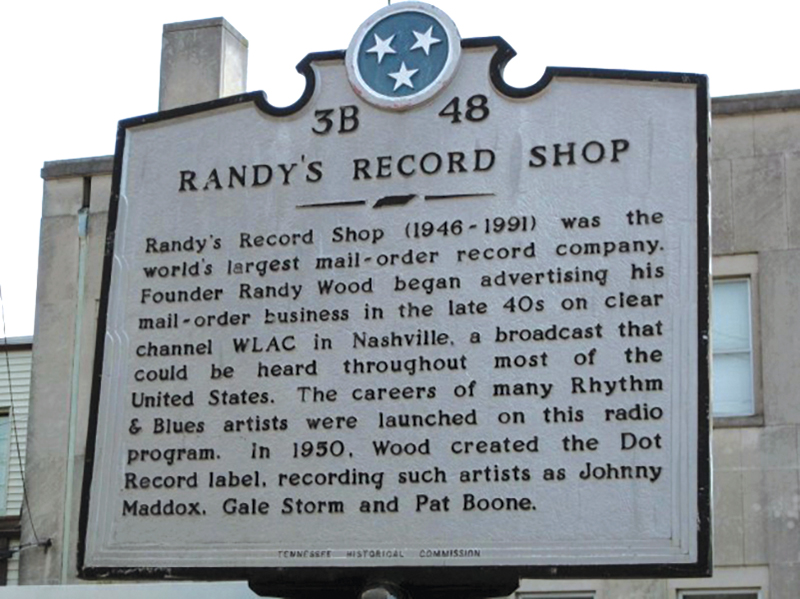 Music to cruise by, thanks to WLAC and Randy
Music to cruise by, thanks to WLAC and Randy
The other day I met this guy, and in the small talk that followed I asked him where he was from.
“Gallatin, Tennessee. Near Nashville. You probably never heard of it.”
Of course I had. As had just about everybody of my generation who grew up a teenager in the Lower South.
“Gallatin, Tennessee,” I replied. “WLAC and Randy’s Record Shop.”
The name recalled the era.
Back in the 1950s, down deep in Dixie, teenagers riding around in cars at night, listening to the radio, had a problem. Most small town stations shut down at sunset. And the few that stayed on the air played music for the grownups – big band, Dixieland, or “smooth” country. Spinning the dial to find something else, teenagers discovered WLAC.
Rock n’ roll was abroad on the land, but small town, daytime stations didn’t play much of it. An occasional Elvis, maybe the Everly Brothers, more rockabilly than rock, and precious little of that.
WLAC sent out music that set our parents’ teeth on edge.
In the evenings, when my friends and I were out and about and listening, WLAC not only gave us R&R, it introduced us to R&B, rhythm-n-blues, and to black artists like “Fats” Domino, Little Willie John, LaVern Baker, Howlin’ Wolf and Little Richard. Better still, we could purchase those recordings by mail from Randy’s Record Shop, which was on its way to becoming the largest mail order record store in the nation.
Parents and mainstream record producers tried to turn back the tide. They had Pat Boone “cover” Little Richard’s “Tutti Frutti,” a misguided effort that produced one of the worst recordings in recording history. Thanks to WLAC and Randy’s Record Shop, I would have none of it.
 Later Little Richard told a reporter from the Washington Post that “the white kids would have Pat Boone on the dresser and me in the drawer ‘cause they liked my version better.”
Later Little Richard told a reporter from the Washington Post that “the white kids would have Pat Boone on the dresser and me in the drawer ‘cause they liked my version better.”
Yes, we did.
I can see my father standing in my bedroom door with an expression that said “you paid good money for that?” as “a-wop-bom-a-loo-mop-a-lop-boom-boom” came blasting out of my record player.
Well, yes I did.
Paid it to Randy.
Now it would be stretching things to claim that one radio station and one record store singlehandedly popularized music that bridged a racial gap and sent a lot of white teenagers into the world better able to appreciate the contribution African Americans made and were making to our national culture.
There were other stations in other regions.
But on Dixie’s dark dirt roads, where guys drove with their left hand on the steering wheel and their right arm around their steady girl, WLAC and Randy provided the background wherever they went and whatever they did.
And during those times, all that mattered was each other, and the music.
 Harvey H. (Hardy) Jackson is Professor Emeritus of History at Jacksonville State University. He can be reached at [email protected].
Harvey H. (Hardy) Jackson is Professor Emeritus of History at Jacksonville State University. He can be reached at [email protected].




